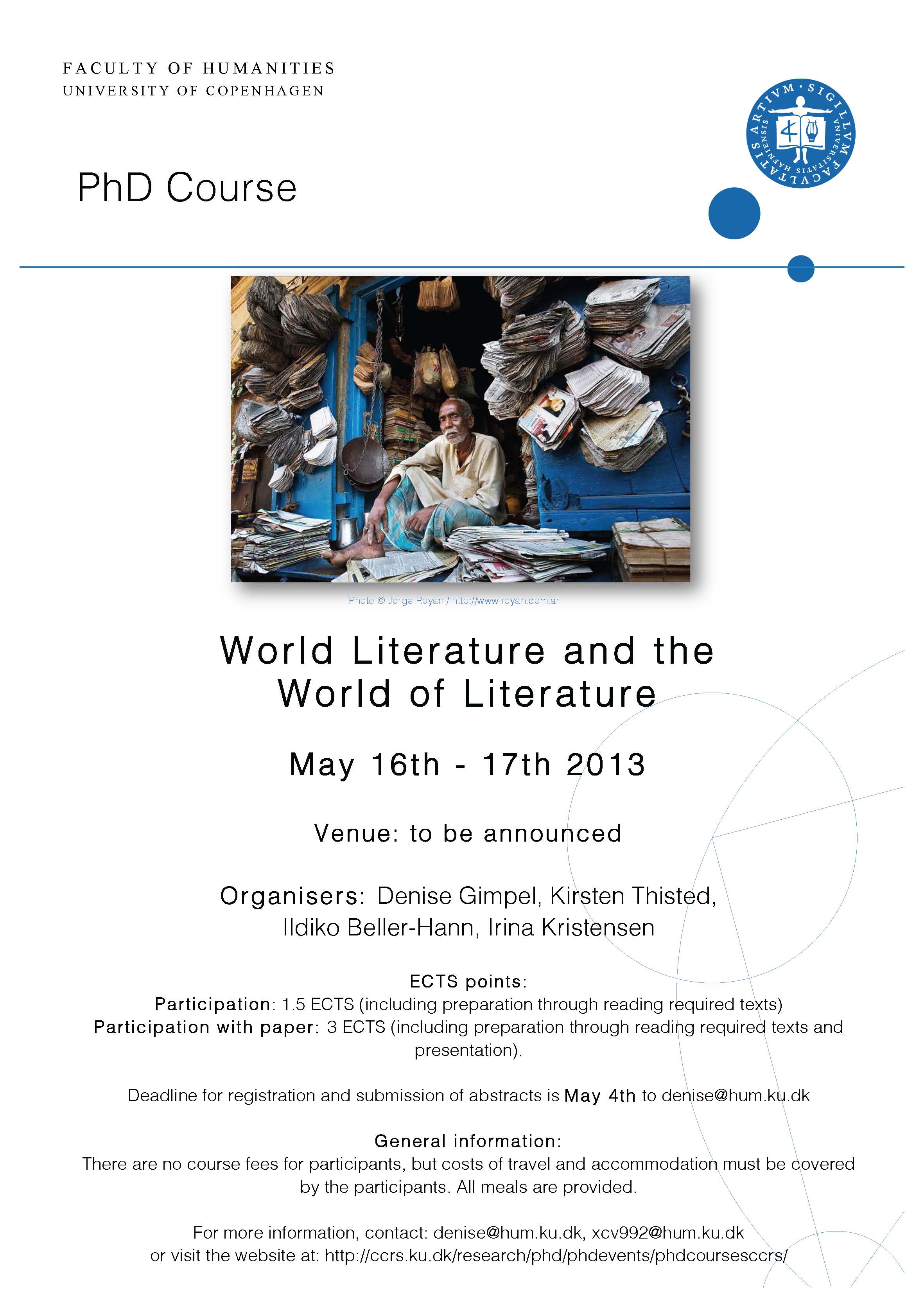World Literature and the World of Literature
World Literature and the World of Literature
May 16th - 17th 2013
Organisers: Denise Gimpel, Kirsten Thisted, Ildiko Beller-Hann, Irina Kristensen
What is world literature? Do certain writers set out to write world literature while others are content to write national literature? Many writers today are more widely read and critically appreciated outside of their own national communities than within them; and often more read in translation than in their 'own' language. The list of Nobel Prize winners in recent years has included many figures of uncertain national definition, and others whose reputation in translation far exceeds that of their 'home' or national readership. Yet literary studies still tend to regard national literatures as normative; we have few terms for the kinds of literature that are exemplified by such figures as Gao Xingjian (Nobel Prize, 2000), V.S. Naipaul (2001), Imre Kertész (2002), J.M. Coetzee (2003), Orhan Pamuk (2006) and Herta Müller (2009). Following the controversial award of the Nobel Prize in 2012 to the Chinese novelist Mo Yan, it is the purpose of this colloquium to ask what has happened to the links between literature and nation and national societies. How does literature acquire significance outside the circumstances of its making, and why do certain writers achieve renown in various geo-political constellations quite different from their own? From Nabokov to Ha Jin, we can see writers contributing (sometimes against their express will) to a national literature even when they do not use the national language. These are features of the literary
world today, apparent to general readers as to the Nobel Prize committee, yet -- such is the conceptual force of the nation in literary studies -- the theoretical accounting of 'world literature' or 'global literature' in the academy has hardly begun.
This course is directed at all those studying literature and its contexts, at those engaged in the investigation and analysis of translation and its consequences, and in the analysis of translators and their agendas.
Our guest speakers are experts on Chinese literature; both have contributed through translation to the western reception of Chinese literature; and both can speak of how western literature may appear from a foreign perspective, and of how a concept of world literature might be negotiated or contested by various parties whose interests may be political, aesthetic, commercial or academic.
We welcome any research projects that include literature and/or translation from any culture and in the widest of senses.
ECTS points:
Participation: 1.5 ECTS (including preparation through reading required texts).
Participation with paper: 3 ECTS (including preparation through reading required texts and presentation).
Deadline for registration and submission of abstracts is May 4th to denise@hum.ku.dk
Required reading:
• David Damrosch. What is World Literature? Princeton University Press, 2003 (324 pp.).
• Introduction to Bella Brodzki. Can These Bones Live? Translation, Survival, and Cultural Memory. Stanford University Press, 2007, pp. 1-15.
• Denise Gimpel and Kirsten Thisted. “Lost – and gained – in translation”. Tidsskriftet Antropologi 56 2007:179-204.
• Ida Klitgård (ed.). Angles on the English-Speaking World vol. 6. Literary Translation: World Literature or 'Worlding' Literature (140 pp.).
• See also Howard Goldblatt on Mo Yan, Nobel Prize and translation: http://ias.umn.edu/2012/11/26/goldblatt-howard/
General information:
There are no course fees for participants, but costs of travel and accommodation must be covered by the participants. All meals are provided.
For more information, contact: denise@hum.ku.dk, xcv992@hum.ku.dk or visit the website at: https://ccrs.ku.dk/research/phd/phdevents/phdcoursesccrs/

